Start a Conversation
Hi! Click one of our member below to chat on WhatsApp
The team typically replies in a few minutes.
Dental Implants vs Dentures: Which Is the Better Option?
Dental Implants vs Dentures: Which Is the Better Option?
Missing one or more teeth can affect your ability to chew, speak, and smile confidently, impacting your general quality of life. Fortunately, modern dentistry offers effective solutions to restore your smile. Two of the most common tooth replacement options are dental implants and dentures, each with their own benefits, considerations, and procedures. Understanding the differences between both options can help you make an informed choice about your dental care.
What Are Dental Implants?
Dental implants provide a long-lasting and durable way to replace missing teeth. Designed to closely resemble the look and function of natural teeth, each implant consists of a small titanium post surgically placed into the jawbone. This post serves as an artificial tooth root, offering a stable foundation for a crown or bridge.
Once the implant is in place, it undergoes a process called osseointegration, where the jawbone fuses with the titanium post. This creates a strong and stable foundation. After the healing period, a custom-made crown or bridge is attached to the implant.
What Are Dentures?
Dentures are removable prosthetic devices designed to replace missing teeth and the surrounding gum tissue.
They feature artificial teeth set into a gum-coloured base that rests comfortably on the gums, staying in
place through suction, natural fit or dental adhesives. For many patients, dentures offer a non-invasive and
cost-effective solution to restore function and appearance after tooth loss.
There are two main types of dentures:
Full Dentures : Used when all natural teeth in either the upper or lower jaw are missing. These dentures rest directly on the gums and may require adhesive for added stability.
Partial Dentures: Ideal for individuals who still have some healthy natural teeth. These dentures fill in the gaps with artificial teeth and attach to the remaining teeth using small clasps or other supportive mechanisms.
Key Differences Between Dental Implants and Dentures
At first glance, both dental implants and dentures serve the same purpose, which is to replace missing teeth. However, they differ greatly in structure, comfort, maintenance, and their long-term effects on oral health.
Permanence and Stability
Dental implants are fixed in the jawbone, offering a stable and permanent solution that does not require removal for cleaning or sleeping. Dentures, being removable, may shift or slip during eating or speaking, which can cause discomfort or embarrassment for some patients.
Bone Health
Implants integrate with the jawbone and help to preserve bone density, preventing natural bone loss after tooth extraction. Dentures sit on the gums without stimulating the bone, which can lead to gradual bone resorption and changes in facial shape over time.
Maintenance
Caring for implants is much like caring for natural teeth, requiring routine brushing, flossing and dental check-ups. Dentures need more specific care, including daily removal, cleaning with special solutions and occasional adjustments as the gums and jaw change.
Aesthetics and Functionality
Implants closely resemble natural teeth in appearance and function, allowing for confident chewing and speaking. Dentures can also look natural, but some patients may experience challenges with chewing harder foods or speaking clearly, particularly with full dentures.
Cost
Although implants involve a higher upfront cost due to surgery and materials, they tend to be a long-term investment. Dentures are more affordable at first, but may require repairs, relining or replacements over time.
Treatment Timeline
Implant treatment typically takes several months, involving surgical placement and healing before the final crown is attached. Dentures can be fabricated and fitted much faster, sometimes immediately after tooth extraction, though additional visits may be needed for adjustments.
Factors to Consider When Choosing Between Implants and Dentures
Making the right choice between implants and dentures involves balancing your health needs, lifestyle, and financial situation. Here are the key factors to discuss with your dentist:
Oral Health and Bone Density:
Assess your gum health and jawbone condition. Implants require healthy gums and adequate bone, while dentures can be an option for those with compromised bone structure.
Budget and Long-Term Value:
While dentures are cheaper initially, implants may offer better value over a lifetime. Consider both the upfront investment and the potential long-term costs of maintenance and replacement.
Comfort and Convenience:
Think about your daily routine. Implants offer a "fit and forget" convenience, while dentures require daily removal and cleaning.
Aesthetic Goals:
Both options can restore a beautiful smile, but implants generally provide a more natural look and feel because they are designed to replicate individual teeth.
Which Option Is Better for You?
Both dental implants and dentures are effective options for replacing missing teeth, but the best choice depends on your individual needs and preferences. If you want a long-term, stable, and natural-feeling solution and are comfortable with the higher initial cost, dental implants may be the right choice. However, if you prefer a non-invasive and more budget-friendly option, dentures can still restore your smile and allow you to eat and speak with confidence.
For personalised guidance on the right treatment, schedule a consultation at SEPA Dental where the experienced team of dentists will assess your needs and create a tailored plan to help you achieve a healthy, confident smile. Book your appointment today to explore your options.
Frequently Asked Questions
How long do dental implants last?
With good oral hygiene and regular dental visits, dental implants can last a lifetime. The titanium post that fuses with the jawbone is designed to be permanent, while the crown attached to it may need replacement every 10 to 15 years due to normal wear and tear. Overall, implants are considered a long-term and reliable tooth replacement solution.
Can older patients in Malaysia get dental implants?
Yes, older adults can safely and successfully receive dental implants. Age itself is not a limiting factor; what matters most is overall health and the strength of the jawbone. If you are in good general health and have sufficient bone density to support the implant, you may be a suitable candidate for the procedure.
Is the implant procedure painful?
The dental implant procedure is carried out under local anaesthesia, ensuring you remain comfortable and pain-free during surgery. Some mild discomfort, swelling or minor bleeding may occur in the days after the procedure, but these symptoms are temporary and can be easily managed with prescribed pain medication.
Welcome to SEPA Dental, a dental clinic that redefines the traditional dental experience with a spa-like touch. Our journey began with a vision to transform the conventional dental experience into a serene oasis, where patients can find solace and relaxation while receiving exceptional dental care.
Quicklinks
Contact Us

SEPA Dental - KL Publika
A2-UG1-2, Publika Shopping Gallery, Jln Dutamas 1, Solaris Dutamas, 50480 Kuala Lumpur

SEPA Dental - TTDI
B-1-11, TTDI Plaza, Jalan Wan Kadir 3, Jln Damansara, Taman Tun Dr Ismail, 60000 Kuala Lumpur
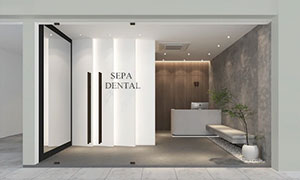
SEPA Dental - Bukit Jalil
E-5-1, Pusat Perdagangan Bandar Bukit Jalil, Persiaran Jalil 1, 57000, KL

SEPA Dental - Klang Bukit Raja
No. 10, Jalan Astaka 1D/KU2, Bandar Bukit Raja, 41050 Klang, Selangor.
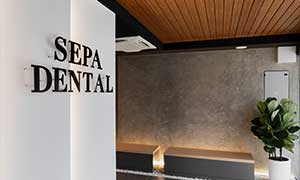
SEPA Dental - PJ SS2
83, Jalan SS 2/75, SS 2, 47300 Petaling Jaya, Selangor

SEPA Dental - Subang
8, Jalan SS 14/1, Ss 14, 47500 Subang Jaya, Selangor

SEPA Dental - Puchong
No 32A (Ground Floor), Jalan Puteri 1/4, Bandar Puteri, 47100 Puchong, Selangor
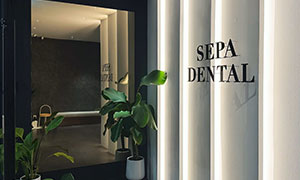
SEPA Dental - Seremban
12 (Ground Floor), Jalan KS 1, Kepayang Sentral, 70200 Seremban, Negeri Sembilan

SEPA Dental - JB Mount Austin
49-GF, Jalan Austin Heights 8/1, Taman Mount Austin , 81100 Johor Bahru
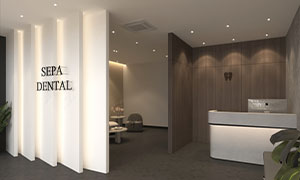
SEPA Dental - JB Sutera Utama
41, Jalan Sutera Tanjung 8/3, Taman Sutera Utama, 81300, Skudai, Johor
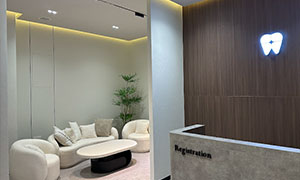
SEPA Dental - JB Eco Botanic
NO 37-GF, Jalan Eko Botani 3/4, Taman Eko Botani, 79100 Iskandar Puteri, Johor Darul Ta'zim
SEPA Dental Holdings Sdn Bhd
202201018177 (1463874-V)